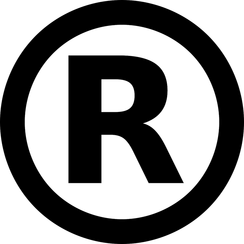the Levine ENTERTAINMENT
LAW & Business Monitor
Bringing you information, musings, and periodic rants on a variety of entertainment, intellectual property, and business topics.
 In the first part of this article on building an effective brand for bands and solo musical artists, I discussed some basic marketing considerations. However, in addition to marketing issues, trademark and service mark development also requires critical legal analysis. The failure to clear a band name before using it in commerce can come back to haunt a group, because under United States (and certain other countries) trademark law, one obtains rights in a mark by being the first to use it in commerce, rather than being the first to register the mark. Although it is impossible to be 100% certain that a proposed mark will not infringe upon an existing use of the same or a confusingly similar mark, one should always take steps to limit potential exposure to infringement actions. Even if a challenged mark is ultimately deemed non-infringing, the legal expense to get to that point can put most bands out of business. It is advisable to seek help early from an intellectual property ("IP") lawyer with trademark clearance and registration experience. Most IP lawyers employ a two-step clearance process. The first step is generally termed the “knockout” or preliminary search, which incorporates searches of the U.S. Patent and Trademark Office (“USPTO”) records, websites, and other databases. Assuming that the knockout search comes back clear, an experienced IP lawyer will then employ the services of a third party search organization for a more robust "full" search in those geographic territories in which the mark is to be used. The full search typically expands the previously mentioned sources to state business filings, industry directories, and other proprietary databases. Obviously, this is a more expansive and more expensive approach to the clearance of a mark. However, the extra expense pales in comparison to the defense costs associated with a typical trademark infringement action or, even worse, the amount of an adverse judgment. It is also extremely difficult, if not impossible, to calculate the expense of goodwill lost when one must abandon a mark and develop a new mark "midstream" because of failing to properly clear the first mark at the outset. It is also worth mentioning that bands should discuss and reach an agreement as to who owns the band’s marks, including the band name. Band name ownership is one of many issues that should be handled in a written band partnership agreement if the band is operating as a partnership or in a shareholder or operating agreement if the band is formally organized as a corporation or limited liability company (a/k/a an "LLC"), respectively. In summary, although a band’s primary business is making great music, members should always consider the management of its IP assets, including the band name, to be a critical part of that business. Addressing clearance and registration issues early with legal counsel can help limit the risk of having to adopt a new name after spending valuable time and resources, or worse, having to change names completely and pay damages to another party because of infringement.
0 Comments
Your comment will be posted after it is approved.
Leave a Reply. |
AuthorL. Kevin Levine is the founder of L. Kevin Levine, PLLC (go figure), a boutique entertainment, copyright, trademark, and business law firm in Nashville, Tennessee. A lifelong musician who grew up in his family's music store, it was inevitable that Kevin would build his legal career in entertainment and business. Archives
June 2016
Categories
All
|
Contact Us
Phone: 615.600.4765
Connect With Us
|
Office Location1033 Demonbreun Street, Suite 300
Nashville, TN 37203 By appointment only. Conveniently located in Nashville's vibrant Gulch district, just off Music Row and minutes from Downtown.
|
